Moonee Valley water sensitive cities benchmarking
Contact
Insight:
Early application of the Water Sensitive Cities (WSC) Index Tool to Moonee Valley City Council
The drivers
Securing a more Sustainable, Healthier Future for the Region, with a particular focus on improved water sustainability and increased water quality in surrounding ecosystems
-
Maintain status as a leading council in integrated water management – Undertaking the Water Sensitive Cities benchmarking process made Moonee Valley City Council the first area to apply the WSC Index Tool beyond the trial phase.
-
Renewal of the Integrated Water Management Strategy – With an ageing Integrated Water Management Strategy and desire to move towards a more integrated approach to planning across the organisation rather than producing detailed individual strategies, Council used the WSC Index Tool as an opportunity to understand its current water sensitive performance and guide future investments and planning as part of the Council’s long term strategy, MV2040.
The innovations
Debut use of WSC Index Tool resulting in six targets for MV2040 Strategy
- Live polling to gauge individuals’ perspectives on the score for the indicator in question (bespoke web-based tool)
- Interactive discussion to uncover evidence and justification to inform the indicators’ scores
- Reaching consensus among the participants on the final scores for each indicator.
- Presenting results to compare outcomes against WSC Index goals, Urban Water Transitions Framework, WSC outcomes and other regions.
Six 2040 targets based on the results of the WSC Index Tool – The outcomes of the benchmarking were directly used as part of a follow up project - the Green Blue Strategic Directions Plan. The WSC Index Tool scores were used to inform targets and actions in this plan. For example, a low score in vegetation cover recognised the need for a canopy target. Six measurable targets were set for the Council to improve water cycle management, ecosystem health and community equity and engagement:
Target 1: 100% of sportsfields and priority parks are irrigated with alternative supply
Target 2: Preserve the level of services of the existing drainage system
Target 3: 30% canopy cover by year 2040
Target 4: No net loss in biodiversity and a net increase in ‘natural’ vegetation
Target 5: 100% of residents and workers are within 500 m of green space
Target 6: 60% of our local community understand, appreciate and feel connected to water and vegetation.
WSC targets informing Council-wide targets and actions – The six WSC targets were used to inform strategic directions, targets and actions which are now adopted as part of Council’s MV2040 Strategy:
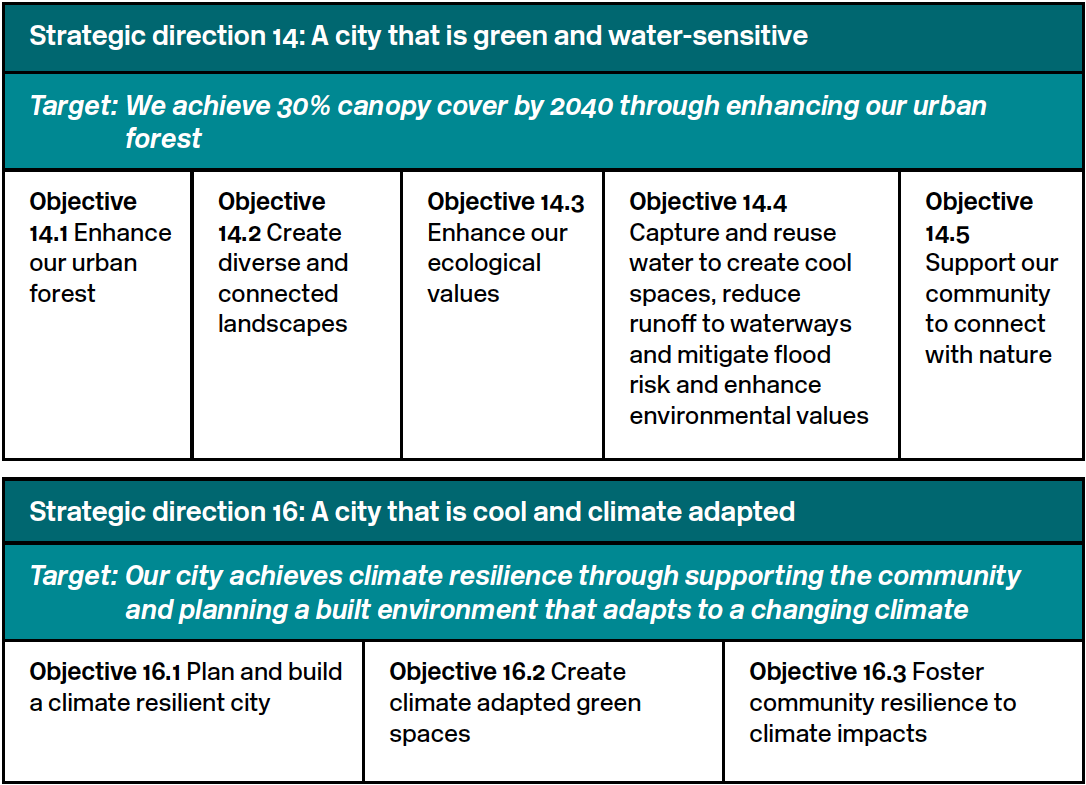
Evaluation of targets in improving water sensitive performance – Moonee Valley tested the effectiveness of its six targets by rerunning the tool to simulate the impact of achieving the targets on the WSC Index score. Doing this helped Moonee Valley understand how effective the targets would be in improving its future water sensitive performance.
Project stats
Location
Melbourne, Victoria, Australia
Dates
September 2019
Participants
Topics
Contact
The outcomes
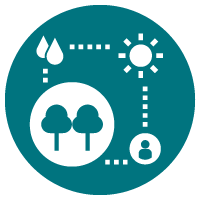 Cities providing ecosystem services
Cities providing ecosystem services

-
Actions for increased urban forest and ecological values – Actions are now included in MV2040 and focus on protection of existing vegetation and additional planting to increase urban canopy cover and resilience of ecological values.
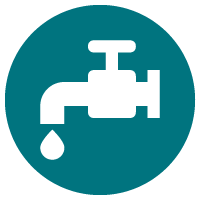 Cities as water supply catchments
Cities as water supply catchments

-
Actions for alternative water supply – Actions are now included in MV2040 and include stormwater harvesting for sportsfields and passive irrigation of landscapes.
 Cities comprising water sensitive communities
Cities comprising water sensitive communities

-
Increased knowledge of Council employees regarding water sensitivity – Council staff reported increased understanding of the Council’s water sensitive strengths, as well as a clearer understanding of where improvements could be made to strengthen governance arrangements and build community capital.
-
Actions for community engagement – Actions in MV2040 include engagement with the community to increase their connection with nature and improve their resilience to future climatic changes.
Interested in this solution?
We partner with small and large companies, government and industry in Australia and around the world.
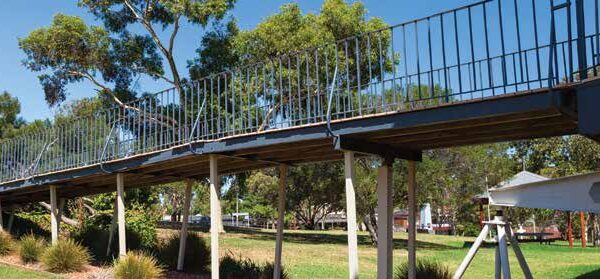

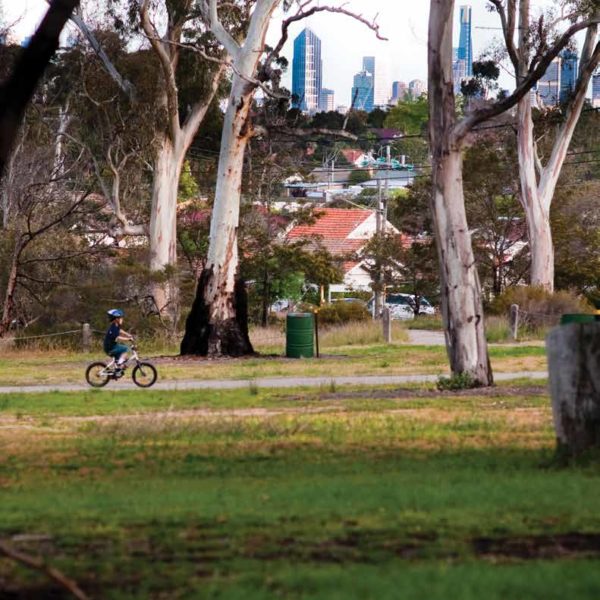
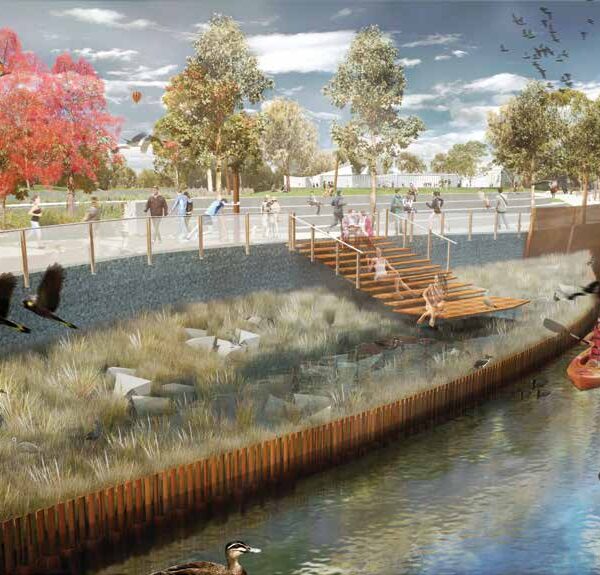
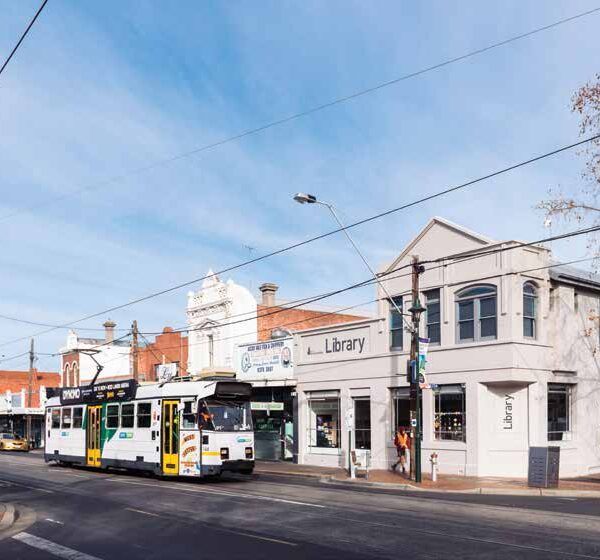
Comments